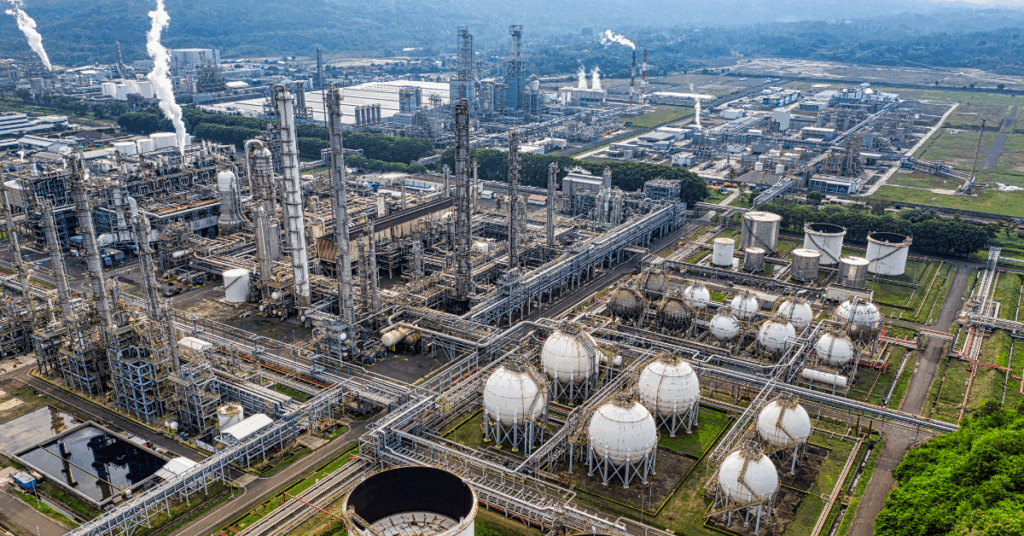An ounce of prevention is worth a pound of cure, so the saying goes, and when it comes to industrial plant maintenance the old adage couldn’t be more right. In the fast-paced environment of modern industrial plants, equipment uptime and reliability are critical for maintaining production schedules, meeting customer demands, and ensuring workplace safety.
One of the most effective strategies to hit these marks consistently is preventive maintenance. But when it comes to industrial plants, what is preventative maintenance exactly? Simply put, it’s the practice of regularly inspecting, servicing, and repairing machinery before problems occur.
Unlike reactive maintenance, which addresses breakdowns after the fact, preventive maintenance takes a proactive approach to keep equipment in optimal condition. This not only improves operational efficiency but also protects a company’s bottom line.
1. Reducing Unplanned Downtime
Unplanned equipment failures can bring plant operations to a halt, resulting in production delays, missed deadlines, and lost revenue. Preventive plant maintenance minimizes these risks by catching small issues before they become major breakdowns.
As one example, while routine inspections might identify worn belts, low fluid levels, or faulty wiring before they lead to complete systems failures, regularly scheduled preventative maintenance means busy industrial plants can better plan around downtime: ensuring repairs or servicing happen during off-peak hours. This proactive approach helps maintain productivity, reduces costly disruptions, and keeps your operations running smoothly.
2. Extending Equipment Lifespan
The machinery in your plant represents a significant investment. Extending the useful life of said equipment is a way to maximize your return on that investment. Preventive plant maintenance plays a central role in this process by keeping systems clean, lubricated, and properly calibrated. Just like a car that lasts longer when oil changes and tune-ups are done regularly, machines in industrial plants perform better and last longer when serviced on a schedule. So instead of having to replace expensive assets prematurely, plants can rely on their equipment being around for years beyond the average lifespan.
3. Improving Safety & Compliance
Safety is paramount in any industrial environment, and poorly maintained equipment can create dangerous conditions, leading to injuries or even catastrophic accidents. Preventive maintenance ensures that machines are operating safely and in compliance with OSHA regulations and other industry standards.
For example, regular checks on pressure systems, electrical equipment, and ventilation systems can prevent hazards such as leaks, fires, or harmful emissions. Not only does this protect employees, but it also shields companies from liability, regulatory penalties, and reputational damage. A well-structured preventive maintenance program demonstrates a company’s commitment to safety and compliance: values that resonate with both workers and customers.
4. Enhancing Efficiency & Productivity
Equipment that’s well-maintained performs at its peak capacity. Preventive plant maintenance eliminates inefficiencies caused by worn-out components, build-up of debris, or improper calibration; this leads to smoother operations, reduced energy consumption, and consistent production quality.
For instance, keeping your HVAC systems clean ensures proper climate control, which can directly impact product quality in certain industries. Similarly, proactively maintaining conveyor systems and robotics reduces delays in production lines. Ultimately, preventive maintenance enables plants to maintain high productivity while reducing waste and optimizing resource usage.
5. Lowering Long-Term Costs
It’s natural for businesses to weigh the cost of preventive plant maintenance against the perceived savings of reactive maintenance. However, studies consistently show that preventive maintenance is far more cost-effective in the long run. Reactive maintenance often involves emergency repairs, expedited shipping for replacement parts, and costly downtime: all of which quickly exceed the expense of routine servicing. By investing in preventive maintenance, companies can better control budgets, plan for repairs, and avoid surprise costs. In addition, the improved efficiency and longer equipment lifespan generated by preventive care create even greater financial benefits over time.
What Is Preventative Maintenance in Industrial Plants?
Preventative maintenance in industrial plants is something that can reduce unplanned downtime and extend the lifespan of your equipment. It’s something that can improve your plant’s safety and enhance its operational efficiency. It’s something you can do sooner than later to lower long-term costs and increase your plant’s financial stability. Looked at in this light, preventive maintenance is more than just a best practice: It’s a necessity for modern industrial plants.
At ACE Environmental, we get it. We understand the unique demands of industrial facilities and offer the kind of industrial plant maintenance services that will keep your equipment and your plant running at peak performance. To learn how our top-notch industrial plant maintenance services can support your preventive maintenance program and keep your operations moving forward, contact us today.

